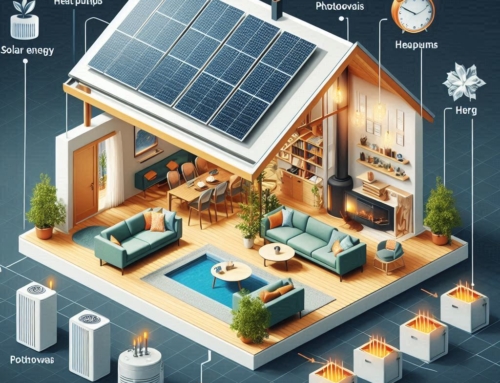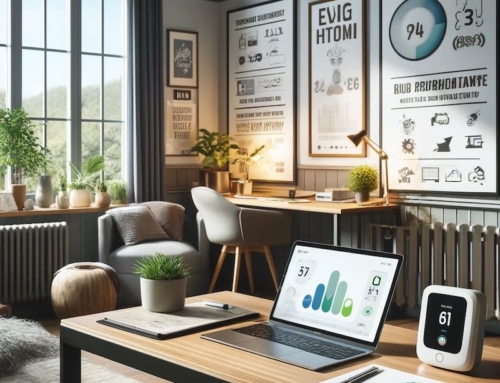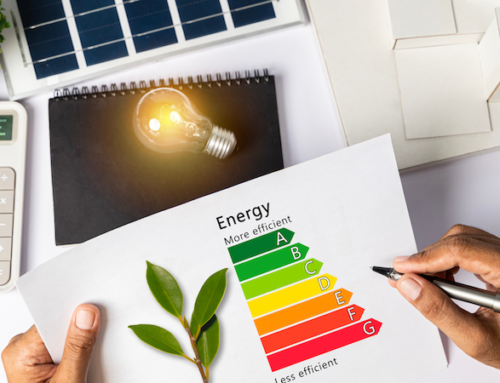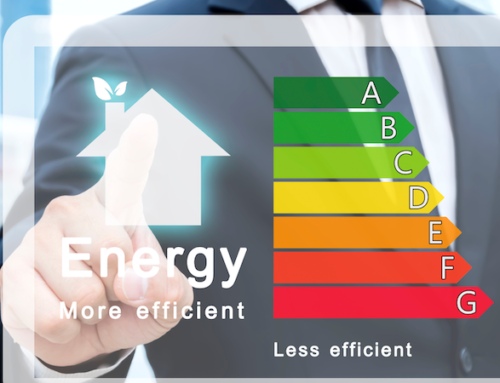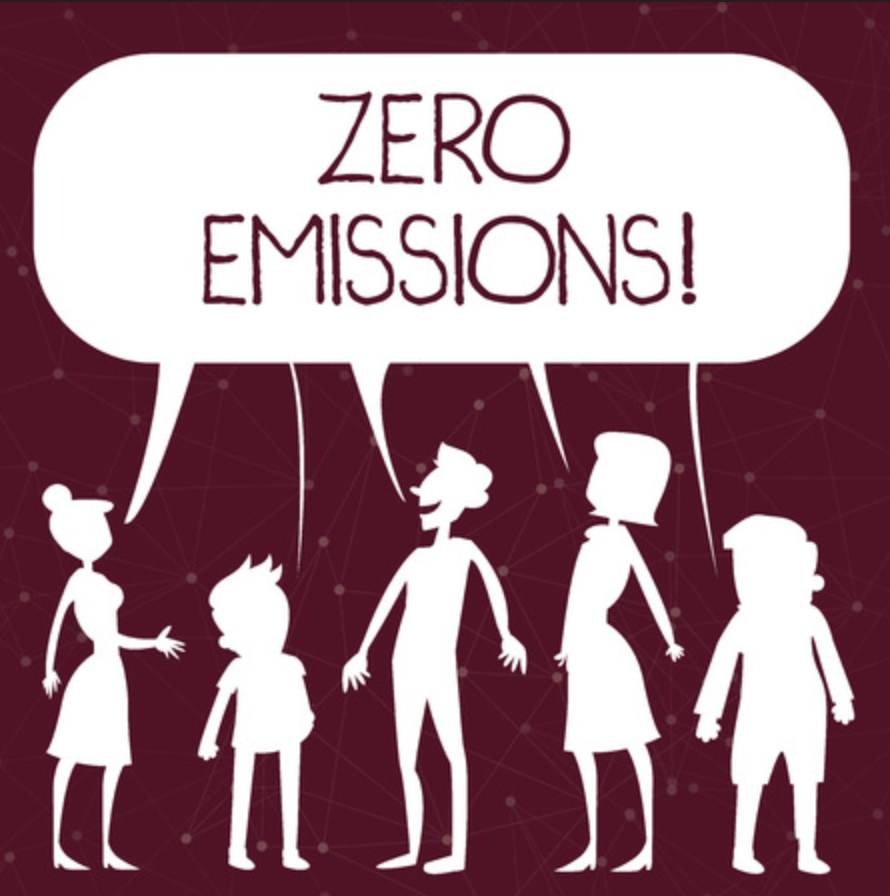

The heat pump in Switzerland: is this equipment really profitable?
1 - Introduction: heat pumps in Switzerland
The heat pump, also abbreviated as heat pump, is a good alternative to oil and gas boilers and electric heaters. The energy transition already includes scenarios for the massive development of heat pumps in the Swiss building stock. If these scenarios are implemented, what will happen to the country's electricity consumption?
With the help of a heat pump, approximately 80% of the required heating energy can be taken from the air or the ground - i.e. from environmentally friendly and renewable energy sources. The remaining 20% of the heating energy is electricity. Ideally, the electricity comes from your own photovoltaic system! By way of comparison: with oil or gas heating, 100% of the heating energy required comes from non-renewable, fossil fuel sources.
Here is how it works:
Source: The heat pump (Agridea, 2008)
Electricity is used to extract heat from the environment and thus to heat a closed system. For example, the environment can be the ambient air and the closed system can be a house. The latter is heated by hot water circulating in radiators. This is referred to as an air-water heat pump. The heat pump is generally used for heating or domestic hot water. (Agridea, 2008)
2 - The heat pump: the coefficient of performance
When we talk about heat pumps, we do not usually talk about efficiency but rather about COP (coefficient of performance). The latter is defined as the amount of heat that can be obtained for each kWh of electricity.
It can be seen that a water-to-water heat pump can achieve coefficients of performance of 5.0, i.e. for 1 kWh of electricity the heat pump produces 5.0 kWh of heat to heat your building. As a general rule, good machines that meet the PAC System-Module label have the following COPs:
Air-water heat pump
- for high temperature radiators - COP 2.7
- for underfloor heating systems - COP 3.5
Geothermal heat pump
- for high temperature radiators - COP 3.6
- for underfloor heating systems - COP 4.5
Boiler-PAC
- for domestic hot water at 55°C - COP 2.6
- for domestic hot water at 65°C - COP 2.2
It is easy to see why electric heaters are out of fashion with this new technology. Because they have a maximum performance factor of 1 or less.
3 - Is the electricity consumed by heat pumps of renewable origin?
Heat pumps need electricity to operate. But where does this electricity come from? It is clear that if you have a photovoltaic system, some of the electricity produced by the panels will be used to run the heat pump. But where does the electricity for the heat pump come from at night and especially in winter? Well, the answer is simple, it comes from the electricity grid and the renewable source depends on the electricity mix at the time it draws power from the grid. (Elcom, 2021)
Switzerland currently imports electricity from neighbouring countries (France and Germany) mainly in winter and exports electricity in summer using storage dams. The energy mix of neighbouring countries can therefore be used to determine whether a heat pump is powered by renewable energy. If the energy comes from France, it is mainly nuclear. For Germany, there is unfortunately still a lot of coal in their energy mix.
To get an overview of the CO2 content of the European grid, you can visit this website: (CO₂ emissions from electricity consumption in real timen.d.). Nevertheless, the CO2 emission of a heat pump even in winter is still lower than that of a gas or oil boiler.
4 - Objections to heat pumps and counter-arguments
"I can't install a heat pump because I don't have underfloor heating...!"
It is clear that a heat pump can cover the heat requirements of almost all buildings heated with radiators. This applies to flow temperatures of over 55 °C.
"I don't want to install a heat pump because it's too noisy, my neighbour...!"
There has been a major advance in the last 10 years in the field of acoustics. However, attention to entry-level heat pumps is required. Split technology produces noise in the boiler room equivalent to a refrigerator.
"Yes, but if it's to import dirty electricity from Germany or France... no thanks!"
That's right. On the other hand, oil and fuel oil is imported from all over the world, in 2018 most of it came from Nigeria and Kazakhstan. The largest coal producers in the world are China, India and the USA. Gas is mainly imported from Europe, in 2019 most of it came from Russia, Norway and the EU.
https://www.20min.ch/fr/story/d-ou-vient-notre-energie-745382820470
"Yes ok, but it is in winter that we import the most energy... and it is precisely in winter that heat pumps consume a lot!"
If we consider the worst case, including an air-water heat pump working at -7°C and a COP of 2, the CO2 impact is lower than that of a gas or oil boiler.
PIC CO2 imported electricity: 400 g/kWh
CO2 gas: 203 g/kWh
Heating consumption with heat pump at COP 2 = 400 g/kWh / COP = 200 g/kWh.
This is therefore lower than the impact of producing the same quantity with gas.
5 - The conclusion
The heat pump is much more efficient than a conventional boiler. And the latter uses electricity as an energy carrier. In addition, if coupled with a photovoltaic system, the heat pump consumes more electricity from renewable sources. Thermal storage is also possible, during the peak of solar production at midday in winter the house can be slightly overheated in order to consume less electricity at night.
6 - Bibliography
Agridea. (2008). Renewable energy (French edition). Agridea.
Elcom. (2021). Consumption profile. https://www.prix-electricite.elcom.admin.ch/
CO₂ emissions from real time electricity consumption.. (n.d.). Retrieved 8 July 2021, from http://electricitymap.tmrow.co
Morand, G., Ellert, C., & Jacquod, P. (2018). Thermodynamics, Energy and Environmental Techniques, Physics II.
SwissEnergy. (2019). Heat pumps Planning I Optimisation I Operation I Maintenance. https://www.suisseenergie.ch/search/
Martin Borkovec / martin.borkovec@ik.me
Master Energy and Environment (HES-SO)
Company: Santandrea Energie Expert
Date: 28.02.2022

